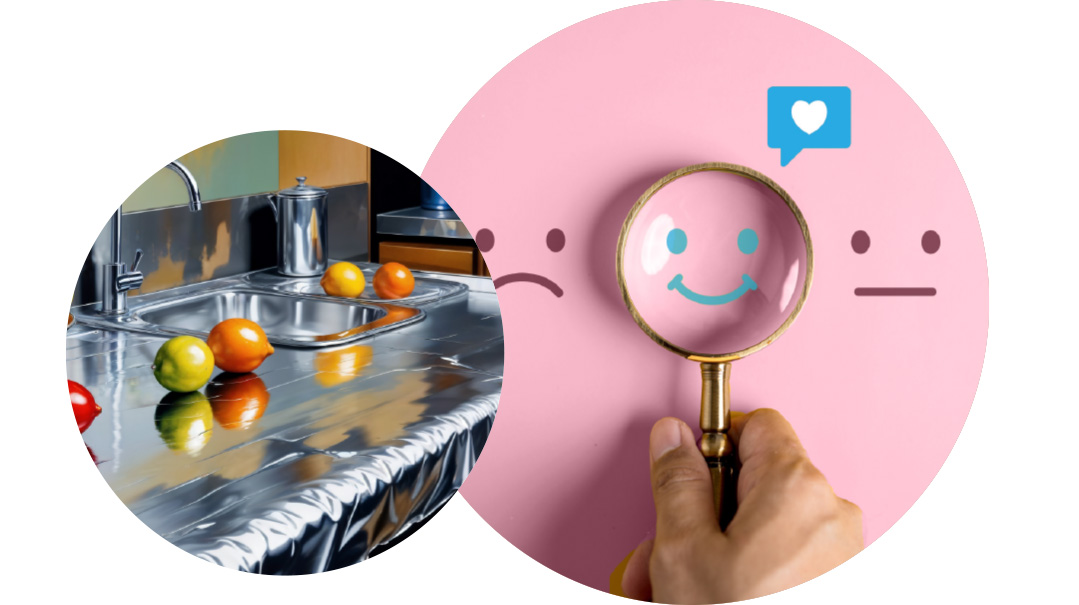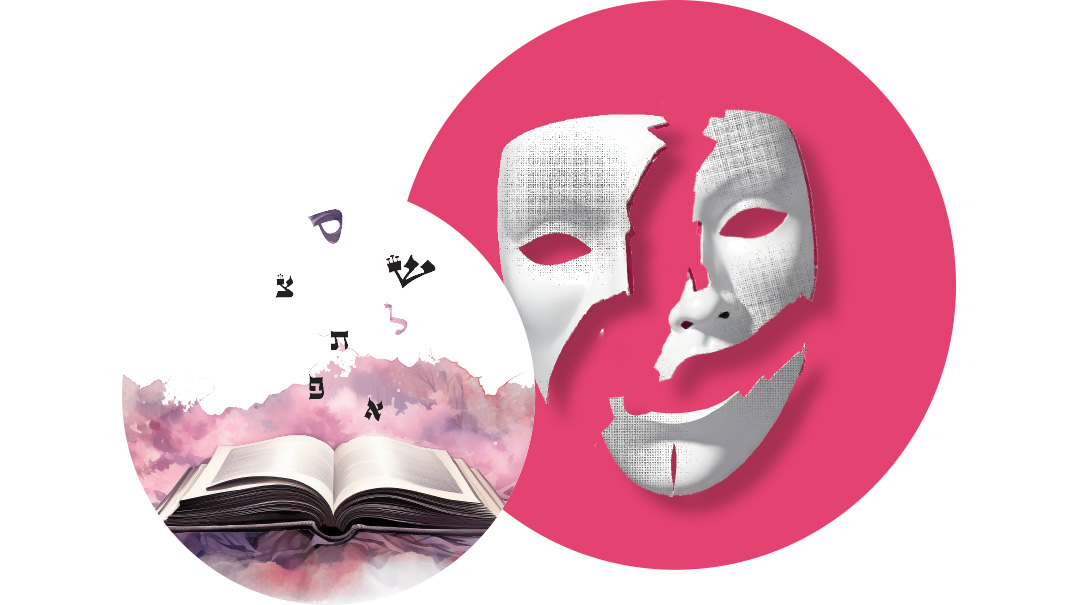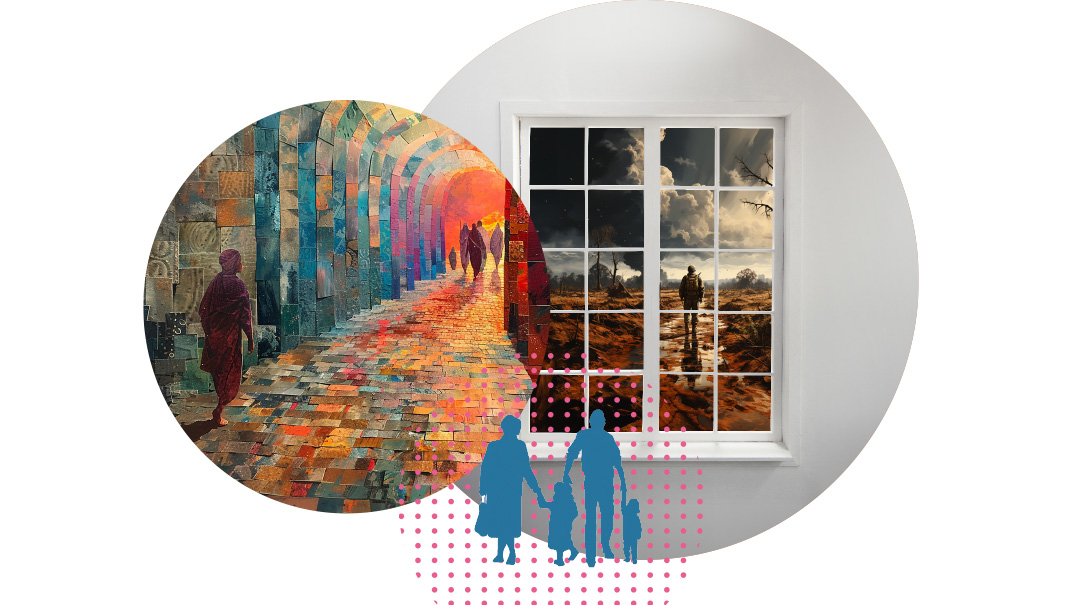Family First Inbox: Issue 743

Please, please do not minimize and downplay the effects of BPD. I know you mean well, and I believe you that you love and care for those in your family and community. But love is not enough for victims of abuse

Don’t Downplay My Pain [Inbox / Issue 741]
I’m writing in response to Anonymous Rebbetzin who feels hurt by the “unfair and gross misrepresentation of borderline personality disorder.” Rebbetzin, you are right: Those who suffer from BPD are not cruel, they are suffering. However, I feel your definition and explanation is, too, an unfair and gross misrepresentation.
You see, my mother and little brother suffer from BPD as well. BPD is not merely difficulty managing intense emotions. People with BPD are often very abusive and display many harmful behaviors in addition to self-harm and suicidal tendencies. My mother has stolen from stores and homes, done melachah on Shabbos when she thought no one was looking, threatened to kill us, and told me that I’m worthless. And this is just a drop in the bucket.
Years ago, I took a class for loved ones of BPD sufferers. My classmates’ stories could have been my own. I learned that people with BPD do not mean to hurt those around them, and that they can be helped with DBT, but that very few people with BPD do this — they often believe they are the only normal ones, and that everyone around them has severe issues. In such cases, there is nothing to do except leave or distance yourself so you do not suffer as well. Unfortunately, this causes more pain and worsens the suicidal tendencies of the BPD sufferer.
I am so sorry for the pain you and others with BPD suffer. It took me many years to accept that my mother’s and brother’s behaviors were not intentional and they didn’t mean the things they said. But that doesn’t mean it wasn’t terribly traumatic. I, along with some of my other siblings, have also suffered from self-harm and suicidal tendencies — not due to a chemical imbalance, but due to years of abuse.
Please, please do not minimize and downplay the effects of BPD. I know you mean well, and I believe you that you love and care for those in your family and community. But love is not enough for victims of abuse.
I wish only health, peace of mind, and happy and healthy relationships — for you as well as those you love and who love you.
Name Withheld
Recovering from BPD [Inbox / Issue 741]
Thank you for featuring articles about mental health. I believe we are getting closer and closer to breaking the stigma. With that said, I’d like to respond to the inbox letter written by Anonymous Rebbetzin, who was disappointed by the negative portrayal of borderline personality disorder (BPD) — in an article about the therapeutic process, “Malka” is devastated when her therapists suggests she has BPD — and who shares that many successful people and community leaders have BPD traits.
I couldn’t agree more. If our goal is to destigmatize mental illness, isn’t Malka’s response to her “diagnosis” of BPD a gross injustice to those who are suffering from it and to the mental health world at large? If BPD has a bad rap now, then what are we gaining by describing it in such terms? Are we creating a healthy awareness or promoting the unjustified myth that people with borderline are “dangerous” and “crazy”? Individuals affected by BPD are struggling immensely. They crave and deserve our love and acceptance, not callousness.
Now, you’ll defend yourself and say that people with BPD can be hostile and violent and even engage in self-harming behaviors. True, they can be. And that’s why there’s help available, such as Dialectical Behavioral Therapy, individual therapy, and medication. But let me ask you a question: Would you blame an adult for screaming after their scalding cup of coffee accidentally slips onto their hand? Would you tell them to just snap out of it, it’s just some hot water? No — you’d rush their hands under cold water, run to get ice and offer comfort.
People affected with BPD must be shown that care. They are hurting. They are coming from a deeply invalidating environment where their emotional needs weren’t met and are often labeled as “overreacting.” What they need most is to be told that they make sense, that their emotions and feelings make sense and matter. Trust me, it will get easier. But first show them your love and care and refrain from condescending remarks. See their true essence and core. After all, they are neshamos and are worthy of basic human care. Give them that gift!
How do I know this? I’m struggling with borderline and have been using DBT, individual therapy, and medication to help me. Yes, it takes a lot of work — but it’s doable.
Struggling and Recovering from BPD
Some Notes on SVT [Medical Mystery: Out of Beat / Issue 741]
I wanted to address some of the points brought up in the Medical Mystery featuring a woman who was diagnosed with SVT after many episodes of feeling lightheaded, dizzy, and disoriented. The condition is defined accurately, but the list of triggers is overemphasized. Stress can cause SVT, but most patients experience symptoms when they are not stressed. SVT affects adults of all ages. Symptoms can be incapacitating and significantly impact day-to-day living.
The overwhelming majority of SVTs are due to an “extra” electrical connection that causes an abnormal circuit to form. Ablating these “extra” connections is among the safest and most effective minimally invasive therapeutic procedures performed in cardiovascular medicine.
Cardiac electrophysiologists avoid using the terms “surgery” or “surgeons” when describing our work. The heart is accessed using wires that pass through veins in the leg. There are no “incisions.” The “needle hole mark” in the skin usually disappears in a few days. Almost all our patients are walking within 1–2 hours and go home the same day.
The author correctly points out that many SVT patients take a long time before getting an ablation. Her story of multiple Hatzolah calls, doctor visits, and emergency room visits is common. SVT ablation is an effective and considerably safe way to cure abnormal heart rhythms.
Alexander Kushnir, MD, PhD
Cardiac Electrophysiology
A-Fib Awareness [Medical Mystery: Out of Beat / Issue 741]
As a paramedic for Hatzolah for roughly 30 years, I read your medical mysteries very carefully. The Medical Mystery about SVT was an excellent article and very informative. Yet, it completely skipped one of the most common and dangerous of the supraventricular rhythms — Atrial Fibrillation (“A-Fib”). A-Fib is very prevalent: Current estimates are that close to 5 million cases exist in the US, and that number is expected to grow to 12 million by 2030.
A person with A-Fib can have the identical symptoms described in the article — yet the patient with A-Fib is five times more likely to have a stroke. Although the incidence of A-Fib increases with age, it can and does happen with younger people — with the possibility, chas v’shalom, of the same awful result. A-Fib can be diagnosed rather easily, and it can be managed using medication, cardioversion, ablation — and in some cases with monitoring. Since COVID, we have been seeing many more new cases of A-Fib, often months after recovery from a fairly “simple” case. Hashem yeracheim.
The bottom line is to never ignore the signals that Hashem is providing to promptly see an appropriate doctor and deal with the situation.
A Paramedic
Take Off the Blinders [Know This: Alopecia Areata / Issue 741]
The recent Know This column about alopecia areata shared a beautiful story of resilience and hope. But I wanted to comment on one sentence.
The author was given a brochure about how to cope with alopecia. She writes: “When I saw the section on bullying, I realized how lucky I am to be Jewish — I knew I would never experience any issues with my friends because of my hair loss.” How I wish this sentiment were true! Baruch Hashem, the author was consistently treated well and had healthy, supportive relationships that were unaffected by her condition.
Unfortunately, the attitude that we are immune to social problems like bullying is as pervasive as it is untrue. We cannot conceive of our sweet, frum children possibly bullying and ostracizing those who look or act different, and yet it happens so often. We cannot continue to deny that bullying could (and does) happen in our Bais Yaakov schools. As a community, we have a responsibility to teach our children how to relate to people who do not look or act exactly like us. We have to look out for those who may never perfectly fit in. And we have to listen to, and believe, those whose experiences might not mesh with our rosy view of our society.
And then, with no blinders on, may we all feel how lucky we are to be Jewish!
Name Withheld
Choose to Thrive [Know This: Alopecia Areata / Issue 741]
I was filled with emotion reading Rivka Teitelbaum’s Know This about having alopecia. I was classmates with Rivka, and it was eye-opening to reflect back on our teenage years from an adult perspective. Although I admired Rivka a lot, I could not fully appreciate then what she went through.
Rivka had every right to become a recluse filled with self-pity, but she didn’t just choose to survive those years, she chose to thrive. An extremely talented girl, she was dance head for production and sang beautifully, teaching us a song she composed that we sang at our graduation dinner. She danced at chagigahs, actively joined school functions, participated in class, went to shul, and was just a normal girl in our eyes with no place at all for pity. Rivka, I still have only admiration for you now — but did we give you enough credit then?
A friend and classmate
(Originally featured in Family First, Issue 743)
Oops! We could not locate your form.







